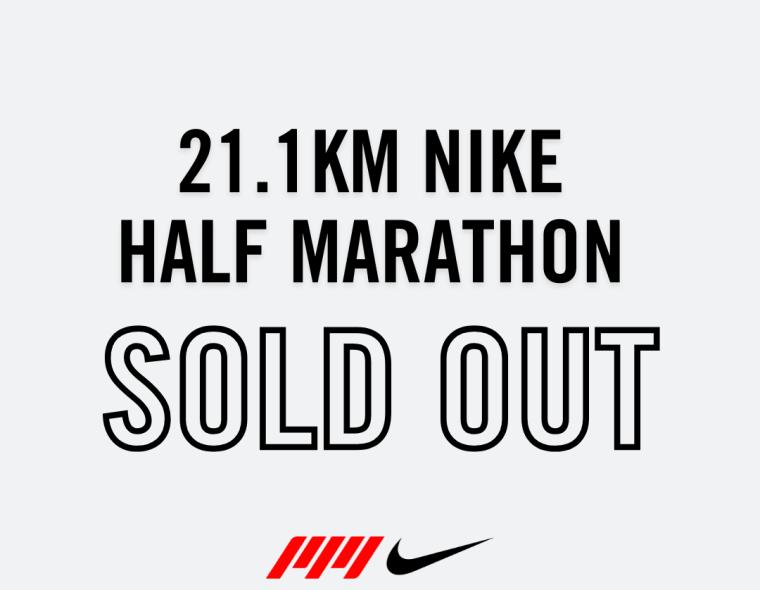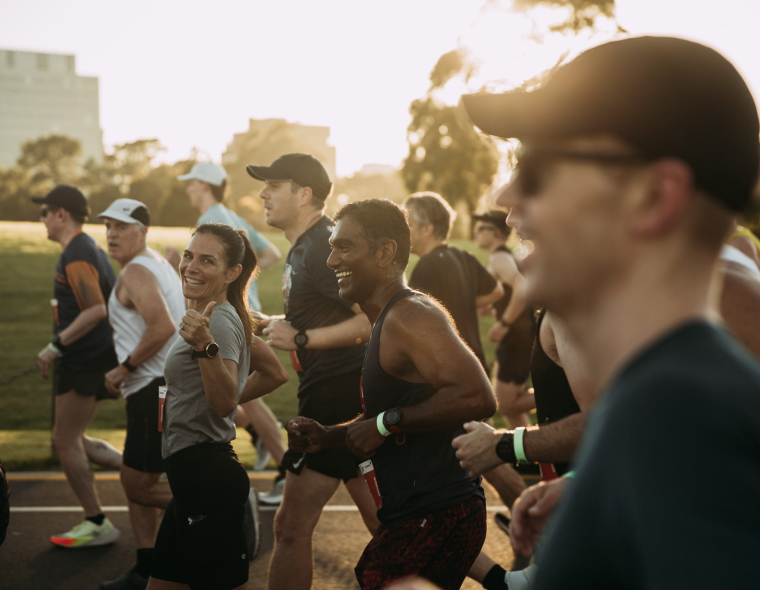The countdown of the top 10 most memorable Melbourne races continues with our panel of experts selecting 1982 at No.3
The Year: 1982
The Winners: Bill Rodgers (US) 2:11.08 Sue King (US) 2:37.57
The Race
Race director Ted Paulin struck gold in 1982, luring one of the sport’s biggest names Bill Rodgers to Melbourne for $30,000.
‘’At the time Bill was the biggest name in marathoning. His record in the major races was outstanding. I went to the Dairy Authority and told Des Cooper and he asked, ‘Who’s the best runner?’ and I said ‘Bill Rodgers’, and he said ‘Let’s get him’.
“Boston Billy”, was at the tailend of a career that had netted him four Boston Marathon wins and four New York Marathon wins.
He was 34 and had no fear of travelling to faraway places. Melbourne was his 41st marathon.
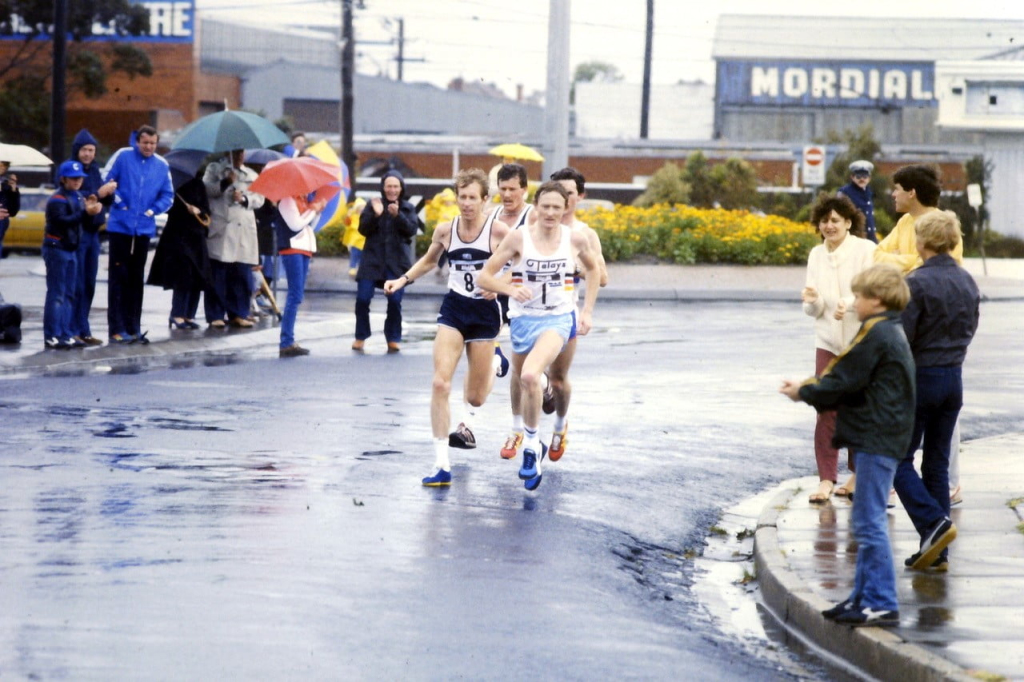
Having successfully lured Rodgers, Paulin’s only problem was finding elite Australian runners capable of making a race of it with the American.
Little more than a week earlier Robert de Castella had won a gripping Commonwealth Games battle in Brisbane defeating Tanzania’s Juma Ikangaa.
While that had fired up most novice runners, it meant that Deek and Australia’s other top distance runners were recovering, though the Games did provide one benefit with then in-vogue royal Captain Mark Phillips staying on to fire the starting pistol.
One elite runner that Paulin did manage to lure was defending champion Andrew Lloyd. “I had a bit of a calf injury but Ted Paulin was pretty persistent and paid for my airfare,’’ Lloyd recalled. “It was nice to meet Bill though, but I knew I wasn’t going to finish.’’
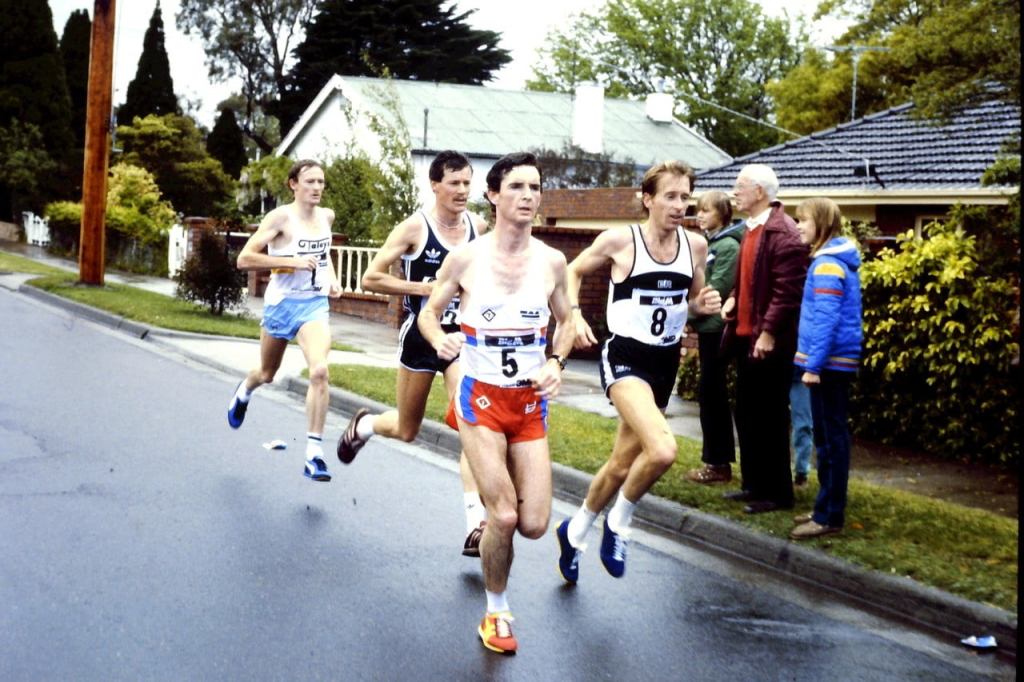
South Australian Grenville Wood was fit and keen to make a point to the national selectors, while Tasmania Vivian Woodward had a reputation for courageously going out hard. Both were happy to run with Rodgers.
Race day dawned with unusual weather conditions. Instead of runner’s facing a headwind off the bay, competitors in 1982 rode a tailwind from Frankston.
A record 641 runners broke three hours that morning as PBs became the norm.
Rodgers winning time of 2:11.08 would remain a race record until 2010.
“I wanted to run the fastest marathon in Australia, which I thought was a 2:11:09 by Derek Clayton,’’ Rodgers said. ‘’But Rob de Castella had just won the Commonwealth Games (in Brisbane), so the bar had been raised really high (2:09.18).
While Woodward hit the wall and faded to fourth in 2:16.26, Wood kept going to record his best time of 2:12.50.
“It (Bill Rodgers running) gave the race something to fall back on,’’ Wood said.
“It wouldn’t have meant as much to me if I’d finished second to any other Australian, except Rob de Castella.”
Fast times were also the order of the day in the women’s race, won by American Sue King in a race record 2:37.57.
From Mobile, Alabama, King shared the same manager as Rodgers and was coached by New Zealand’s Kevin Ryan.
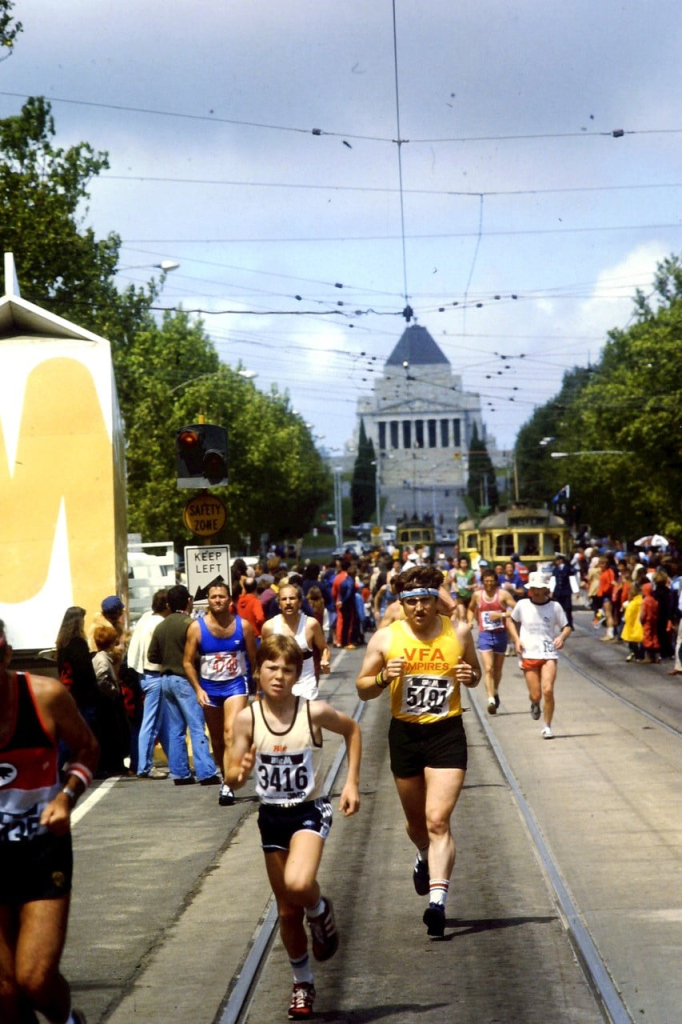
Defending champion Jackie Turney improved her PB by more than two minutes to run 2:39.53 but was edged out for second by Queensland doctor Jill Colwell, who set an Australian record 2:39.38.
Colwell, 30, had started running the previous year and was on the Pritikin diet, which was all the rage then.
“I never ran at school. I’m not a member of a club, nor am I a registered athlete. I’m just a jogger,’’ she said.
“It’s a bit of a shock to me that I can even run the distance. I only started running to get fit. I had high cholesterol and running was just part of the overall way of dealing with it.’’
It was also one of the last years that there was no age restrictions on entrants and with the tailwind helping them, several youngsters recorded times almost impossible to believe.
A 12-year-old boy Andrew Peyton clocked 2:48.03 and an 11-year-old girl C.Driver ran 3:09.27. Both backed up in 1983 but were 20 minutes slower.
Paul Gojkovic, 8, ran with his dad Ulrich and clocked 3:16.22
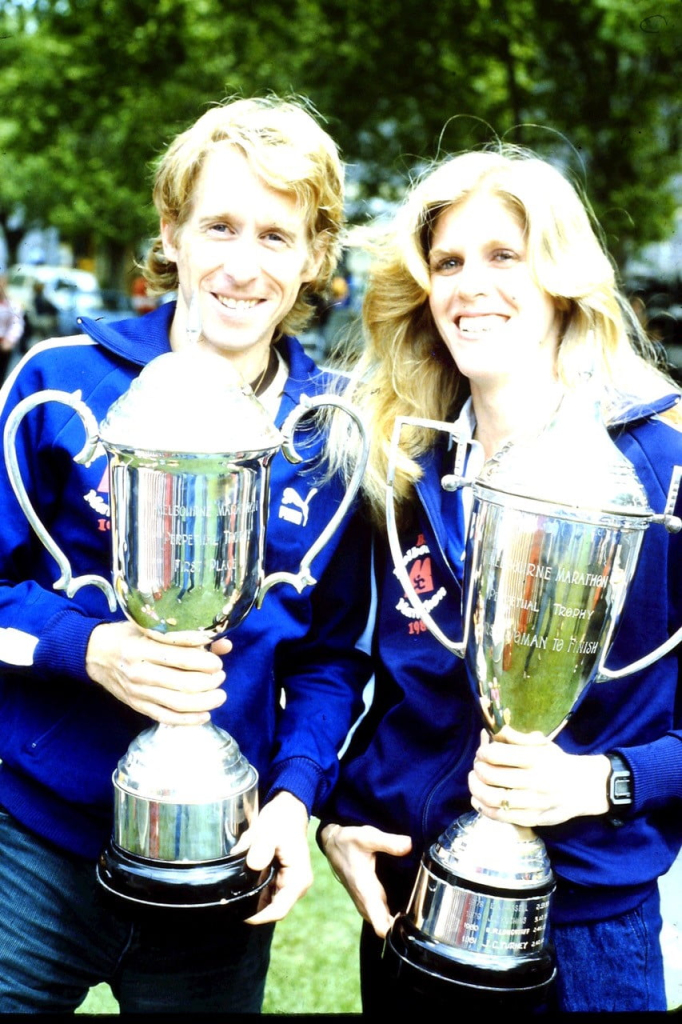
Those who ran in 1982 will remember it for one more reason.
There was a shortage of water at the finish. Instead many runners were offered a Big Strawberry M milk drink or the new EggFlip flavour that had been launched at the race. As Spartan Damien Cook recalled: “There was a lot of reflux happening at the finish line that year.’’
Why it was memorable
Mona says: “Having ‘Boston Billy’ put MM on the international marathon map.”
Turney says: “Getting Bill Rodgers, who was one of the biggest names in marathon running at that time, to come over was huge … and he delivered.”
Muirden says: “Ted Paulin deserves the plaudits. He manages to get Bill Rodgers and Andrew Lloyd to the start line and then arranges the weather gods to help out. What a year. ”
Our panellists:
Steve Moneghetti – Berlin and Commonwealth Games Marathon winner, Balllarat running icon, Comm Games Chef de Mission and regular Melbourne Marathon TV commentator
Jackie Cook (nee Turney) – two-time race winner (1981 and 1987) and coach of many Melbourne Marathon entrants
Chris Muirden – race historian, regular entrant and former course director


